

Tao Te Ching

Leadership
Leadership - Turning Stones of history
A necessary evil, a potent tool of goodness for civilization and culture? Both? More?
Reports show that about 1/3 of any given population are easily hypnotized and therefore natural followers. Another 1/3 are almost impossible to hypnotize and from this group arise natural leaders. Though leaders may only reflect and embody the spirit and understanding of their times, their influence on civilization is undeniable. Most use their natural leadership traits for personal gain and become corrupted by power and their own success, arrogantly fly too close to the sun, and crash in a dramatic fall, or just gradually fade into oblivion. Salutary leaders like Benjamin Franklin cloak their strength with inscrutable anonymity and accomplish powerful change without credit. Like the “turning stone” in a Japanese garden, they receive the torch of a wisdom lineage, translate into contemporary language, and evolve our collective consciousness. Chuang Tzu described the best leaders to be like high branches in a tree who protect and nourish the people while the people don’t even notice them and “wander in freedom like deer in a forest.”
The best leaders aren't attached to power and the benefits of having power; but rather, only become pulled into leadership positions by a demand for their leadership qualifications—they enter into the positions with reluctance and hesitation. In contrast, democracies tend to elect and give power to those who want it the most, who spend the most money, time, and pieces of their souls in order to grasp the position. It could often prove true that the more someone desires/grasps/fixates on the office, the less qualified they become as well as more likely to achieve their goal.
Pascal points out how irrational it is to nepostistically appoint leaders, kings and queens based on their parents as well as a huge advantage in doing so: preventing extreme power struggles, chaos, and civil wars. In the case of Abraham Lincoln and Stephen Douglas, it did result in an actual civil war. In our own time, no hostilities yet but the constant fighting between the Democrats and Republicans in many ways does resemble warfare.
The Confucian solution to this dilemma—one of the most meaningful contributions of Confucius to cultural evolution—was the idea of from an early age to train future political leaders and having their advancement dependent on achievement rather than background, political pull, or wealth. Only a fantasy during Confucius' time, this system of government became solidly implanted during Zhu Xi's era in the establishment of Neo-Confucianism. Today, democracies still elect incompetent, untrained, and perverse leaders like Donald Trump; but, US history does have examples of this more Confucian approach in the family political lineages of the Kennedys and Bushs.
Quotes (91)

“The ruler must visibly cultivate his Virtue (德) and embrace government policies that will allow the state to compete for the minds and hearts of the people.”

“When the hour of the great man has struck, he rises to leadership; but before his time has come, he is hampered in all that he attempts.”

“Only a leader not focused on personal gain, can wisely govern.”

“The wise can easily be made into leaders but leaders not so easily made wise.”

“If you can stay in the lead of men without their knowing, you are at the core of life.”

“When leaders are convinced by concepts, corruption, confusion, and conflict reign. When instead they remain unconvinced and open, blessings and goodness spread.”
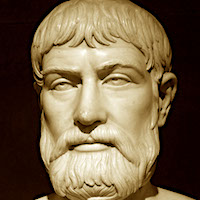
“Even for the feeble, it is an easy thing to shake a city to its foundation, but it is a sore struggle to set it in place again.”
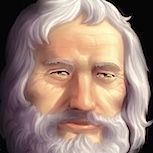
“Power and eloquence in a headstrong man can only lead to folly; and such a man is a danger to the state.”
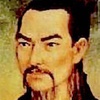
“How can the wise man who has charge of governing the empire fail to restrain hate and encourage love? When there is universal love in the world it will be peaceful and happy; when there is mutual hate, it will be filled with suffering, disorder, and unhappiness.”

“the truly enlightened ruler must think of his subjects first, and of himself last... he will feed them when they are hungry, clothe them when they are cold, nourish them when they are sick, and bury them when they die.”
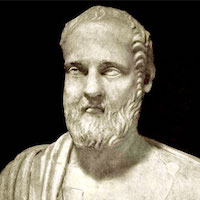
“Whenever you deliberate on the business of the state, you distrust and dislike men of superior intelligence and cultivate instead the most depraved of the orators who come before you; you prefer those who are witless to those who are wise, those who dole out the public money to those who perform public services at their own expense.”
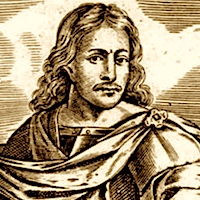
“The leader must himself believe that willing obedience always beats forced obedience, and that he can get this only by really knowing what should be done.”
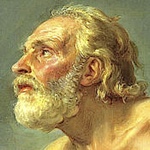
“Wise leaders generally have wise counselors because it takes a wise person themselves to distinguish them.”
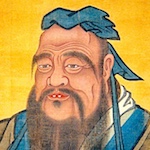
“A ruler's prosperity depends on his exercising a restraint upon himself... When a ruler rejoices in the joy of his people, they also rejoice in his joy; when he grieves at the sorrow of his people, they also grieve at his sorrow.”
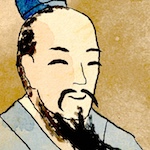
“Those who govern and follow the Tao are like the high branches in a tree; people don’t notice them and wander in freedom like deer in a forest. 3:14”

“Like small hills that pile up and become a mountain, like streams that flow into one another and become a great river; the good leader unites all and makes a unified effort and a unified nation possible”
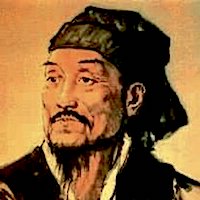
“The straightening board was created because of warped wood, and the plumb line came into being because of things that are not straight. Rulers are established and ritual and rightness are illuminated because the nature is evil.”
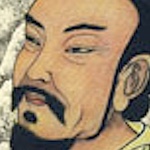
“When the directives of the leadership are ignored because of factionalism, laws are broken out of treachery, intellectuals busy themselves fabricating clever deceits, mettlesome men occupy themselves fighting, administrators monopolize authority, petty bureaucrats hold power, and cliques curry favor to manipulate the leadership. Then, even though the nation may seem to exist, the ancients would say it has perished.”

“To survive peril and quell disorder cannot be done without wisdom. Were it a matter of following precedents, even fools have more than enough. Therefore, enlightened leaders do not enforce useless laws or listen to ineffectual words.”

“There is no stronger test of a man's real character than power and authority, exciting as they do every passion and discovering every latent vice.”
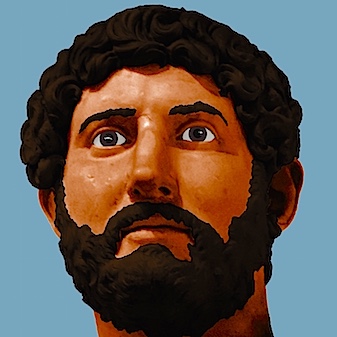
“Our great mistake is to try to exact from each person virtues which he does not possess, and to neglect the cultivation of those which he has.”
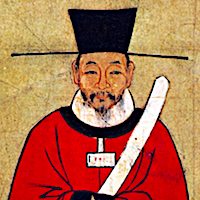
“[Leaders—emperors or hegemons] entrusted the worthy and employed the capable, rewarded the good and punished the evil, prohibited cruelty and executed the rebellious. Therefore, they differ in the honor or pettiness of their status, in the depth or shallowness of their virtue, in the greatness or insignificance of their achievements, in the breadth or narrowness of their governmental orders, but they do not contradict each other like white and black or sweet and bitter.”

“Like a man struck by a stone he throws in the air, the leader who lacks a gentle mind will be punished by karma as he punishes others.”
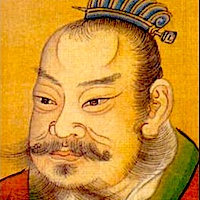
“In times of old, a warrior bold mounts his steed and takes the lead with lance so long in arms so strong. From Western lands our beaten bands return. But he now takes the toll; this noble soul must wear his wasted life away”
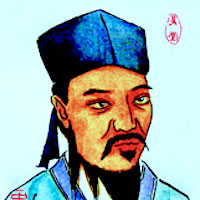
“If rulers could uphold this Tao of effortlessness, without consciously thinking about changing others, others would change by themselves”
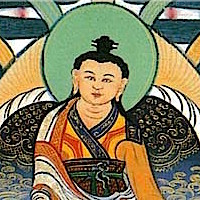
“The wise are like others in that they are leaders in the world. They are unlike other in that they go beyond the world.”
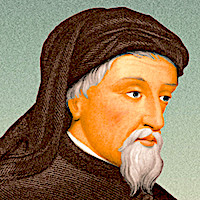
“This friar boasts that he knows hell, and God knows that it is little wonder; Friars and fiends are seldom far apart.”
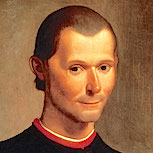 “Only a good leader understands the nature of the people; only the people understand the true nature of the leader.”
“Only a good leader understands the nature of the people; only the people understand the true nature of the leader.” 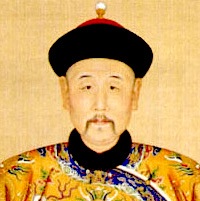
“There is no place for rulers to rest, and no resting place to which they can retreat… I tried to emulate the wise rulers of the Three Dynasties, and desired to bring lasting peace to the whole earth, and make all men happy in their work. For decades I have exhausted all my strength, day after day working with unceasing diligence and intense watchfulness, never resting, never idle.”
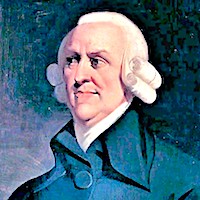
“According to the system of natural liberty, the sovereign has only three duties... first, the duty of protecting the society from violence and invasion; second, the duty of protecting every member of society from every other member of it; third, erecting and maintaining certain public works and institutions... because the profit could never repay the expense to any individual or small number of individuals”
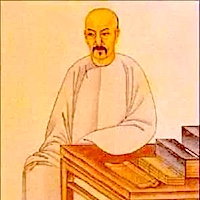
“How an one hold on to a fixed formula and impose it on others?... Everyone has different abilities and skills. The lofty are sharp and broad but unconcerned with with detail, the deep and contemplative take one step at a time and reach their destination gradually.”
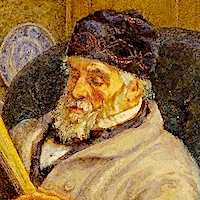
“the Great Man was always as lightning out of Heaven; the rest of men waited for him like fuel, and then they too would flame.”
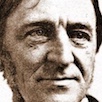
“Do not go where the path may lead, go instead where there is no path and leave a trail.”
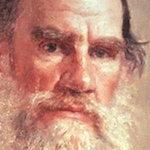
“In historic events, the so-called great men are labels giving names to events, and like labels they have but the smallest connection with the event itself…. every act of theirs, which appears to them an act of their own will, is in an historical sense involuntary and is related to the whole course of history”
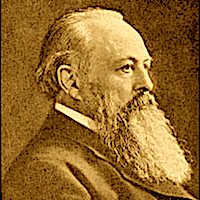
“Great men are almost always bad men, even when they exercise influence and not authority; still more when they superadd the tendency of the certainty of corruption of authority.”
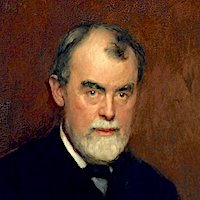
“so engrained in the human heart is the desire to believe that some people really do know what they say they know, and can thus save them from the trouble of thinking for themselves, that in a short time would-be philosphers and faddists became more powerful than ever, and gradually led their countrymen to accept all those absurd views of life”
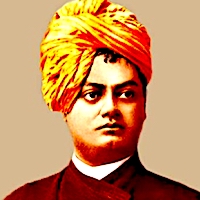
“Once trained, it is essential that their leader leave them, for without his absence they cannot develop themselves. Plants always remain small under a big tree.”
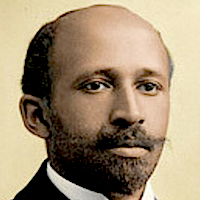
“criticism of writers by readers, of government by those governed, of leaders by those led, - this is the soul of democracy and the safeguard of modern society”
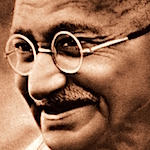
“I suppose leadership at one time meant muscles; but today it means getting along with people.”

“so long as men are not trained to withhold judgement in the absence of evidence, they will be led astray by cocksure prophets, and it is likely that their leaders will be either ignorant fanatics or dishonest charlatans.”
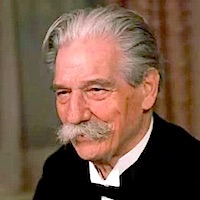
“Example is not the main thing in influencing others. It is the only thing.”

“Whoever speaks in primordial images speaks with a thousand voices; he transmutes our personal destiny into the destiny of mankind, and evokes in us all those beneficent forces that ever and anon have enabled humanity to find refuge from every peril and to outlive the longest night.”
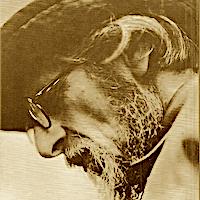
“the great Buddhist Emperor Ashoka is an example of the effect of Buddhist teaching upon character and policy... Quoting 'All men are my children,' he ordered the establishment of hospitals, that shade and fruit trees should be planted by the high roads, that animals should not be killed for his table, that all animate beings should have security, self-control, peace of mind, and joyousness”

“in order to attain any definite goal it is imperative that one person should do the thinking and commanding.”
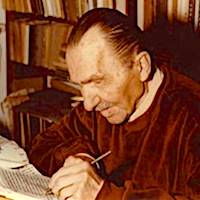
“I am the son of lightning, grandson of thunder's howl;
At will I flash and thunder, at will I fling down hail.”

“Moral reform is the most difficult and delicate branch of statemenship; few rulers have dared to attempt it, most have left it to hypocrites and saints.”

“Our democratic dogma has leveled not only all voters but all leaders; we delight to show that living geniuses are only mediocrities, and that dead ones are myths... Since it is contrary to good manners to exalt ourselves, we achieve the same result by slyly indicating how inferior are the great”

“When a teacher like Mr. Gurdjieff goes, he cannot be replaced. Those who remain cannot create the same conditions. We have only one hope: to make something together. What no one of us could do, perhaps a group can. Let us make this our chief aim in the future.”
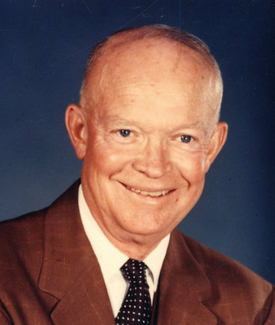
“Leadership is the art of getting someone else to do something you want done because he wants to do it.”
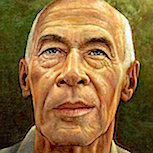
“Political leaders are never leaders. For leaders we have to look to the Awakeners! Lao Tse, Buddha, Socrates, Jesus, Milarepa, Gurdjiev, Krishnamurti.”

“Let a man in a garret but burn with enough intensity and he will set fire to the whole world.”
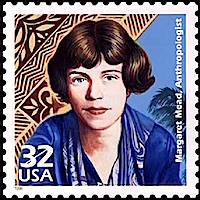
“Never doubt that a small group of thoughtful, concerned citizens can change the world. Indeed it is the only thing that ever has.”
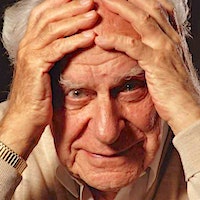
“we must break with the habit of deference to great men. Great men may make great mistakes; and, some of the greatest leaders of the past supported the perennial attack on freedom and reason. Their influence, too rarely challenged, continues to mislead... By reluctance to criticize some of it, we may help to destroy it all.”
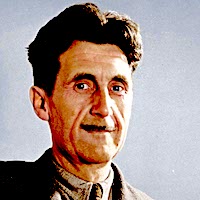
“All rulers in all ages have tried to impose a false view of the world upon their followers.”
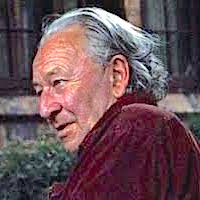
“Perhaps there is no such thing as unilateral power. After all, the man 'in power' depends on receiving information all the time from outside. He responds to that information just as much as he 'causes' things to happen... it is an interaction, and not a lineal situation.”

“A good leader takes a little more than his share of the blame, a little less than his share of the credit”
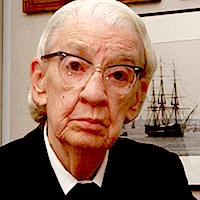
“Leadership is a two-way street, loyalty up and loyalty down. Respect for one's superiors; care for one's crew.”

“Those who truly think for themselves are like monarchs, they recognize no one above them and no more accept authorities than a monarch does orders. They don’t acknowledge the validity of anything they have not themselves confirmed.”
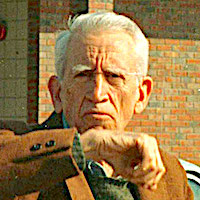
“Raise high the roof beam, carpenters. Like Ares comes the bridegroom, taller far than a tall man.”
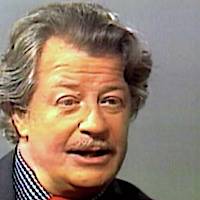
“Remember, in tranquillity, that the Absolute, the Tao, is within thee, that no priest or cult or dogma or book or saying or teaching or teacher stands between Thou and It.”
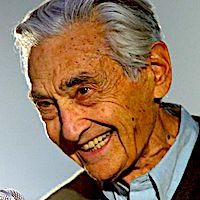
“The idea of saviors has been built into the entire culture. We have learned to look to stars, leaders, experts in every field, thus surrendering our own strength, demeaning our own ability, obliterating our own selves.”

“We are what we pretend to be, so we must be careful about what we pretend to be.”
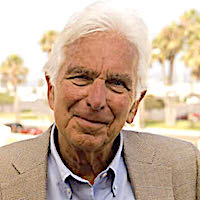
“Becoming a leader is synonymous with becoming yourself. It is precisely that simple and it is also that difficult.”

“A leader takes people where they want to go. A great leader takes people where they don't necessarily want to go, but ought to be.”

“A great government wouldn't chop and hack at human nature, trying to make leaders out of sow's ears.”

“People ask 'Who is a leader?' A leader is a person that does the work. It's very simple.”
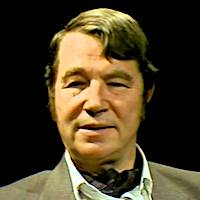
“The Outsider is always unhappy, but he is an agent that ensures the happiness for millions of 'Insiders'.”
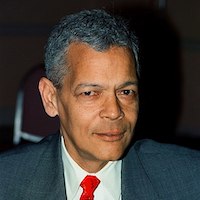
“...leadership can come from anywhere. You don’t have to be a certain type of person or have a certain type of education to be a leader. You just have to be willing to throw yourself into the fight. That’s all it takes.”
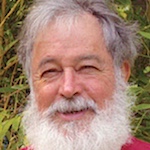
“How different this world would be if our leaders spent as much time in their gardens as they do in their war rooms.”

“When leaders take back power, when they act as heroes and saviors, they end up exhausted, overwhelmed, and deeply stressed.”

“Leaders think and talk about the solutions. Followers think and talk about the problems.”
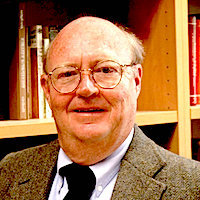
“In the American Revolution, the Civil War, World War II, and the Cold War, democracy proved its superiority to dictatorships in producing leaders worthy of the challenge, leaders that were but a reflection of the robust love of freedom held by their fellow citizens… can we find in the lessons of history the wisdom to choose such leaders today?”
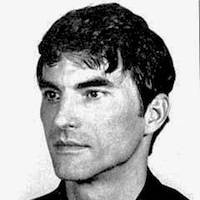
“The concealment of the leadership of real people [those who have realized the Taoist ideal of freedom from artificialities] in unobtrusive spontaneity is a correspondingly common Taoist idea”

“The problem was the managers. Not for them the open struggle of ideas in the marketplace of policy. It was turf politics, building alliances not to further the general good of the body politic, but to cement advantage... to feather their own nests—not to solve problems, but to use problems to strengthen position.”
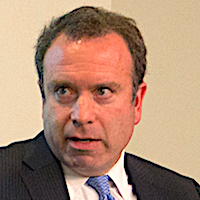
“Too stupid to conspire, too incompetent to obstruct, too dumb to govern... Some of Trump's actions are hateful, some are ideological, and some stretch the bounds of constitutionality. But above all, Trump is bumbling... [he] might talk like Joseph Stalin, but—fortunately—he governs more like Homer Simpson.”

“Almost everything about us is purpose-built to help increase our opportunities for survival and success and our need for leaders is no exception.”

“leaders are not responsible for the results, leaders are responsible for the people who are responsible for the results-- for creating a safe, a trusted and trusting, supportive environment”

“While good leaders exhibit the strength to learn from bad outcomes, great leaders show the wisdom not to overweight outcomes, whether they be bad or good... it is misguided to second-guess your actions simply because the outcome was rotten... Chance, error, and unknowns also play a role.”
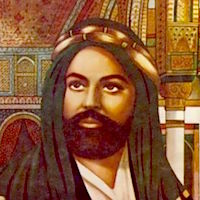

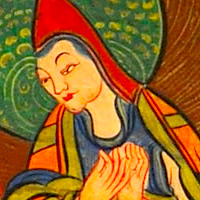

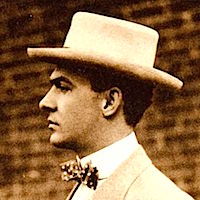
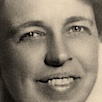
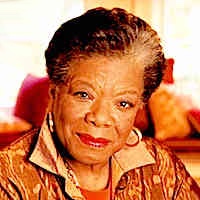
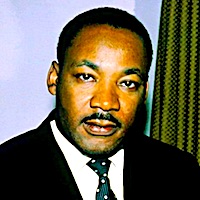



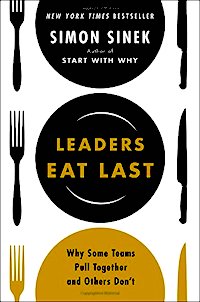

Comments (0)